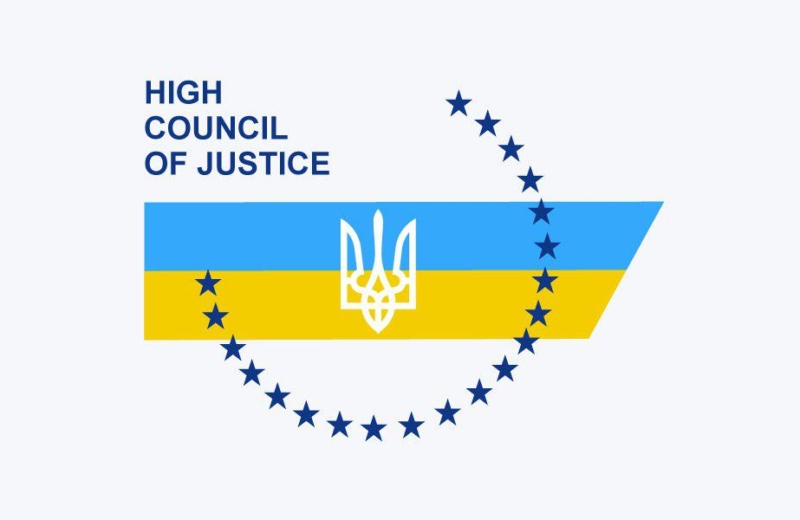In October 2019 Ukraine’s parliament adopted a law that gave a start to President Volodymyr Zelensky’s judicial reform. The law regarded the reform of two judicial governance bodies: the complete relaunch of the High Qualification Commission of Judges, or HQCJ, and cleansing the High Council of Justice, or HCJ, from dishonest members. The law ensured the crucial role of international experts as a guarantee that this time the reform won’t be faked. The model was drawn on the positive example of the anti-corruption court competition where internationals played a key role in vetting dishonest candidates.
As the law envisaged, the new HQCJ had to start operating by Feb. 7, 2020. The Ethics Commission tasked with the integrity checks of HCJ members should have been created by this time too. As of the end of January, nothing of it is done and is not likely to be done.
Why and who sabotages judicial reform in Ukraine?
Selection of the new High Qualification Commission of Judges
The HCJ and the HQCJ are the main judicial governance bodies in Ukraine. The HCJ makes decisions on appointment and dismissal of judges and brings judges to disciplinary responsibility. The HQCJ is tasked with the selection and evaluation of judges.
The law foresees that the HCJ is responsible for the HQCJ competition. It has to make final decisions based on the results of the selection, held by a panel of six: three delegated by the Council of Judges and three by the international experts. In addition, the HCJ approves the composition of the selection panel and adopts the rules of procedure of the competition.
The HCJ sabotaged the competition from the very beginning: they adopted the rules of procedure of the competition as late as one month after the law came into force. Moreover, by the adopted rules of procedure, the HCJ nullified the role of international experts in the selection process. In particular, the HCJ obliged the selection panel to prove its assessment under the highest standards of proof similar to ones adopted within the criminal proceedings. As a reference, foreign experts assessed the candidates to the anti-corruption court under the reasonable ground standard only.
Furthermore, the HCJ illegally obliged international experts nominated to the panel to personally confirm that they have a university degree and professional experience.
Expectedly, international and foreign organizations refused to legitimize this fake competition and did not nominate experts. After that, the HCJ started to share a false statement that only a very limited list of certain international organizations can suggest experts for the selection panel. This is manipulation, as the law does not limit the list of nominating organizations stating that it could be an international or foreign organization.
Pretending to be a constructive actor, the HCJ extended the deadline for international and foreign organizations to nominate experts for the selection panel. However, key obstacles for their engagement are not eliminated. Therefore, it is unlikely that in the nearest future the HCJ will refrain from their excessive control over the HQCJ competition and cancel all illegal provisions of the rules of procedure.
Cleansing of the High Council of Justice
With the second panel, the Ethics Commission, which is tasked with vetting the HCJ members, there is even less progress. On Nov. 27, 2019, the U.S. Agency for International Development and the U.K. Embassy to Ukraine nominated brilliant experts Giovanni Kessler, Carlos Castresana and Robert J. Cordy to the commission. The ball is now on the HCJ’s side – they need to appoint their own quota to the commission. Expectedly, the HCJ is falling behind here too.
Now it becomes more obvious that the HCJ will oppose the creation of the Ethics Commission until the very end. It is fair to say the commission may dismiss at least one-third of the HCJ members.
In addition, the HCJ is actively defending itself in the Constitutional Court, which considers the Supreme Court’s appeal against Zelenskyi’s judicial law. Among other things, the Supreme Court judges questioned the involvement of international experts in the Ethics Commission. The latter, by the way, was positively evaluated by the Venice Commission. The HCJ members participated in an open hearing held by the Constitutional Court, supporting the unconstitutionality of the Ethics Commission and its authority.
The Constitutional Court decision is yet to be made, but it may bring unpleasant news for everybody interested in cleansing the judiciary. One should not forget that one-third of its composition are judges elected by the same corrupt judges we expect to be kicked out from the office under Zelensky`s law.
One example: the Constitutional Court rapporteur Petro Filuk was appointed by the recent Congress of Judges in October 2019. According to the insiders, his name was figuring in the list of so-called “pre-approved” candidates. Also, he used to work with the current HCJ head Andrii Ovsienko – was his boss in the Appellate Court of Volyn region for nearly five years.
Will the turkey ever vote for Christmas?
Way forward
The only solution to move forward with the judicial reform is to adopt a new law that will unblock the reform implementation and limit the powers of the unreformed HCJ that sabotages the process. This is also a good chance for the President and the Parliament to address the issues in question raised by the Venice Commission in its recent opinion regarding Zelenskyi`s law.
At the same time, a full reboot of the HCJ still remains the priority task of the judicial reform. Ukraine already wasted six post-Maidan years by failing to properly address this fundamental issue. Let’s not miss this unique chance again.
Halyna Chyzhyk is an expert on the judiciary at the Anti-Corruption Action Center.



